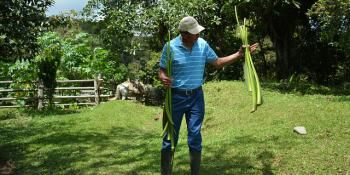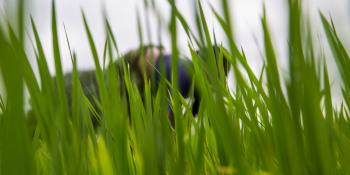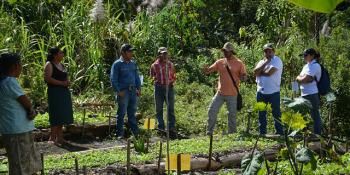Strategic planning for coordinated shared learning in climate change adaptation
The Adaptation Learning Program (ALP) implemented by CARE International and the Climate Change Agriculture and Food Security, CCAFS-EA programme recently discussed the number of adaptation programmes in Kenya and the East Africa region which have a focus on learning at national to regional levels. We recognized that agreeing on a more strategic approach on how we engage as national to regional adaptation learning actors (practitioners, scientists and policy makers) over the coming two years or so would enable a greater collective impact and added value in terms of effective adaptation knowledge and practice than each programme alone. Through sharing plans and objectives for learning and policy engagement this group of programmes could develop a collective/common impact pathway for learning activities in the region to be better focused, coordinated and purposeful. The aim is for coordinated shared learning and more collaborative work through a series of learning activities, events and products with a longer term purpose, avoiding potential duplication and overload of actors with too many ad hoc learning events. An idea arose to discuss this issue further and develop a common framework, outputs and outcomes of a collective learning process.
The Adaptation Learning Program (ALP) implemented by CARE International and the Climate Change Agriculture and Food Security, CCAFS-EA programme recently discussed the number of adaptation programmes in Kenya and the East Africa region which have a focus on learning at national to regional levels. We recognized that agreeing on a more strategic approach on how we engage as national to regional adaptation learning actors (practitioners, scientists and policy makers) over the coming two years or so would enable a greater collective impact and added value in terms of effective adaptation knowledge and practice than each programme alone. Through sharing plans and objectives for learning and policy engagement this group of programmes could develop a collective/common impact pathway for learning activities in the region to be better focused, coordinated and purposeful. The aim is for coordinated shared learning and more collaborative work through a series of learning activities, events and products with a longer term purpose, avoiding potential duplication and overload of actors with too many ad hoc learning events. An idea arose to discuss this issue further and develop a common framework, outputs and outcomes of a collective learning process.
As a first step, CCAFS and ALP are inviting a small group of learning programmes to meet on June 7 from 9am to 3.30pm at ILRI Nairobi offices with the purpose to develop a common strategy for coordinated shared learning on adaptation in East Africa. The meeting will be highly participatory and the outcome dependent on joint discussion and agreement.
The agenda will cover:
- Introductions on adaptation learning issues from CCAFS and ALP
- Sharing of current and planned learning themes, audiences and actions by participants
- Brainstorm of emerging collective issues/themes for adaptation learning over the next two years
- Develop a draft theory of change and impact pathway around common areas of interest
- Outline plans and timing for key events and products
- Identify key thematic pillars and lead actors to take plans forward
CCAFS and ALP identified the following approach in a preparatory meeting:
- Convene a one day strategy meeting, to focus on the areas of common learning on adaptation to climate change and address a range of questions. What evidence do we have? What are the emerging learning issues and themes? Define the impact pathways and outcomes. What they will produce? Which programmes work on which issues now? What resources are needed? Do we have a common goal? What events, audiences and products will be covered? How will they be coordinated?
- Participants to work with initially to include the Africa Adaptation Program (AAP), Africa Climate Change Resilience Alliance (ACCRA), IIED Arid Lands adaptation programme, Arid Lands Information Network (ALIN) and Sokoine University, all of which have elements of national to regional learning and advocacy specific to climate change adaptation.
- Emerging learning and products from more collective and coordinated events will more powerfully feed into the National Adaptation Plans at national level, UNFCCC negotiations and other relevant policy processes over the coming two years.
- CCAFS and ALP are able to co-host events, and would be ready to co-host with others, pooling resources or agreeing how to share responsibilities for different activities and products. Some of the partners within the CCAFS RLP can be brought on board as can a range of other actors with relevant regional learning focus such as REGLAP, Heinrich Boll Foundation, Humanitarian Futures Programme, Practical Action and others.
- ALIN has expressed interest to be involved in the aspect of products and communications.
Please confirm your attendance to A [dot] Kabugi [at] cgiar [dot] org (Assenath Kabugi), with copy to j [dot] kinyangi [at] cgiar [dot] org (James Kinyangi), CCAFS East Africa Regional Program Leader and fiona [at] careclimatechange [dot] org (Fiona Percy), ALP Regional Coordinator.


